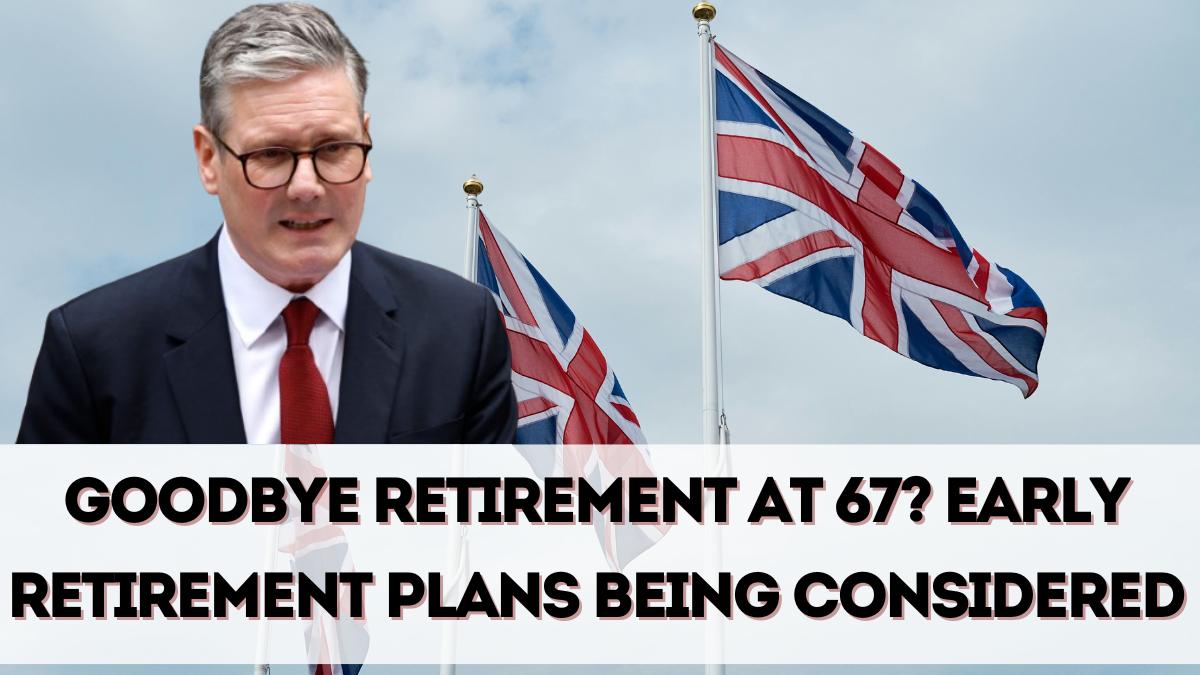The question of retirement has always been a major talking point in the United Kingdom. With life expectancy, work reforms, and economic challenges constantly evolving, the UK retirement age change debate is once again in the spotlight in 2025. The current state pension age stands at 66, with a scheduled rise to 67 by 2028. However, many experts, trade unions, and senior citizens’ groups are now pushing back against the increase, demanding early retirement alternatives for workers.

Why Is the Retirement Age Increasing?
The government’s plan to gradually raise the retirement age to 67 is based on several reasons:
-
Longer Life Expectancy: People are living longer, which means more years of pension payments.
-
Economic Pressure: Rising pension costs put a strain on public finances.
-
Workforce Participation: Encouraging older people to remain in the workforce helps address skill shortages.
-
International Trends: Other developed countries like France and Germany have also raised retirement ages.
However, the counter-argument is that not all workers can sustain employment until 67, especially those in physically demanding jobs.
The Growing Push for Early Retirement Options
In 2025, the debate is shifting towards whether the government should introduce flexible early retirement schemes. Key demands include:
-
Option to Retire at 63–65: With reduced but fair pension benefits.
-
Occupation-Based Retirement: Allowing earlier retirement for those in heavy labor roles such as construction, healthcare, and emergency services.
-
Partial Retirement Plans: Giving workers the option to reduce hours while receiving partial pensions.
-
Health-Based Retirement: Stronger support for workers with long-term illnesses.
This push comes from the idea that retirement age should not be one-size-fits-all.
Impact of Retirement Age on Workers
For many, working until 67 presents real challenges:
-
Health Strain: Older workers may suffer from chronic conditions that limit productivity.
-
Job Market Ageism: Many companies prefer younger employees, leaving older workers with fewer opportunities.
-
Reduced Quality of Life: Delayed retirement may limit the time people can enjoy post-work years.
-
Family Responsibilities: Some seniors provide care for grandchildren or spouses, requiring earlier retirement.
This is why trade unions and pension rights advocates argue that flexibility is the key.
What the Government Is Considering
The Department for Work and Pensions (DWP) is currently reviewing several reform proposals for 2025:
-
Early Retirement Penalty Reduction: Lower deductions for those retiring before 67.
-
Extended Pension Credit: Providing additional income for lower-income pensioners retiring early.
-
Retirement by Occupation: Adjustments based on years of contribution and type of job.
-
Voluntary Early Pension Buyouts: Allowing workers to use private savings to bridge pension gaps.
While no final decision has been made, discussions indicate that the government may allow more flexible choices rather than sticking strictly to 67.
International Comparisons
The UK retirement age change debate is not unique. Other nations are also balancing pension sustainability with fairness:
-
France: Recently increased the retirement age to 64, sparking nationwide protests.
-
Germany: Plans to raise the retirement age gradually to 67 by 2031.
-
Nordic Countries: Offer flexible retirement ages, usually between 62–68, based on contribution years.
-
USA: Full retirement age is gradually increasing to 67, but early retirement at 62 remains an option with reduced benefits.
These comparisons show that while raising the retirement age is common, flexibility is equally important.
Public Sentiment and Protests
In 2025, growing dissatisfaction has led to protests across the UK. Senior organizations argue that pushing people to work until 67 is unrealistic. Workers in physically demanding jobs highlight the unfairness of being treated the same as office-based employees. Public surveys show that:
-
65% of respondents support early retirement options.
-
40% of workers over 55 doubt they can remain employed until 67.
-
70% of pensioners’ groups believe reforms should be occupation-specific.
This public sentiment is pressuring lawmakers to rethink the rigid retirement framework.
Financial Implications of Early Retirement
While early retirement may benefit workers, it has financial consequences for both the government and retirees:
-
Government Costs: More pension payouts in the short term, higher strain on budgets.
-
Reduced Benefits: Workers who retire early may receive smaller monthly pensions.
-
Private Savings Dependency: Many will need personal savings or workplace pensions to supplement income.
-
Long-Term Sustainability: Balancing fairness with funding challenges remains complex.
This makes financial planning crucial for those considering early retirement.
What Workers Should Do in 2025
Employees approaching retirement age should prepare by:
-
Checking their National Insurance contributions.
-
Reviewing workplace pension entitlements.
-
Exploring personal savings options like ISAs and retirement accounts.
-
Consulting financial advisors on early retirement feasibility.
-
Staying updated with DWP announcements.
Taking proactive steps ensures workers are ready for any changes that may come.
FAQs
Is the UK retirement age definitely rising to 67?
Yes, it is scheduled, but debates in 2025 may bring flexible early options.
Can I retire early with a reduced pension?
Yes, under current rules, you can delay or take pensions early with adjusted amounts.
Will physically demanding jobs get special retirement rules?
Proposals suggest occupation-specific retirement ages may be introduced.
Does the triple lock still apply to pensions?
Yes, the triple lock remains in place to protect pension value.
When will final decisions be announced?
Reforms are expected to be finalized before the end of 2025.
Click here to know more.
